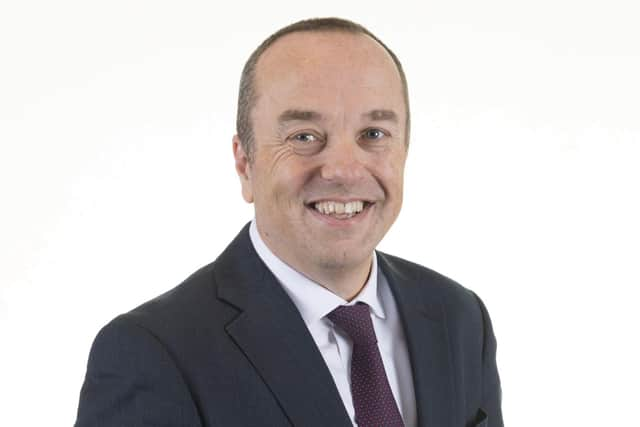Get smarter on health


After a year of Covid-19, it has become hard to pay attention to anything else. As the world has stumbled from lockdown to lockdown, it has easily submerged many other extremely important issues – climate change, unsustainable production of single-use plastic and waste, and even Brexit.
But there is one issue, in particular, that I believe has been, paradoxically, put in the shade by the pandemic – the need to future-proof UK healthcare.
Our NHS has rightly been championed and supported by everyone as it struggled to treat hundreds of thousands of Covid patients. Our nurses and doctors worked tirelessly to help fight the pandemic, the government commissioned huge temporary hospitals to boost capacity and we were all out on the doorstep banging our pans to show our gratitude.


However, I believe our health service is in dire need of investment –and the right kind of investment. For too long, the solution to the UK’s ever-increasing need for healthcare has been hiring more doctors, more nurses, and building more hospitals and GP surgeries and clinics. I think this is a 20th-century solution that is simply driving up the cost of providing healthcare to the nation.
The central problem that we have is that the UK population is getting greyer at a rapid pace. This means that every year more people are in greater need of doctor’s appointments, preventative screening, and surgeries. Yet the cost of that greater demand must be borne by taxing a shrinking number of working people. This is unsustainable.
So, what is the solution? At The Scotsman’s Annual Investment Conference, I argued that we need to increase the efficiency of our health service, not necessarily its capacity.
This is where digital technology creates such fantastic opportunities –automation, self-administered testing machines, digitised patient records, increased use of remote appointments and much, much more.
Technology could drastically reduce the time and labour it takes to help each patient. The opportunities are endless – better scheduling systems can alert people on standby to last-minute appointment cancellations, so fewer staff hours are wasted by no-shows. Greater use of home testing frees up nurses to focus on other tasks. Dictation software would mean doctors can spend appointments talking to patients rather than pecking at a keyboard.
Better diagnostics technology could also help stop health problems forming in the first place. Most of the focus for preventative medicine tends to be focused on spotting cancers, but another huge area of concern is obesity and other diseases, like diabetes, that can accompany it.
By pushing people to be more active, by catching increased risk factors and symptoms of these conditions earlier, could we save hundreds of millions of pounds a year in healthcare costs? But even more importantly, could it improve the lives of millions of people and make them more productive and richer, which would bolster the nation’s tax revenues?
Put simply, the goal should be for each person to spend less time in hospital, not more. We should be trying to reduce the number of hospitals we need for a given population and focusing on using them in the best way possible.
Fewer hospitals mean less concrete has to be poured, fewer administrative and maintenance staff are needed, and the demand for electricity would be reduced. This reduces the burden on the government and the taxpayers who must foot the bill.
Done correctly, this technological revolution would also benefit NHS staff.
treamlined processes with AI assistance could alleviate the need for drudge work, freeing up more time to focus on more impactful, fulfilling tasks.
It would also mean more money available to give NHS staff much-deserved pay rises. Broadly, pay tends to go hand in hand with productivity – the higher the value of output per worker per hour, the higher their wages.
This relationship is a truth that transcends the public and private realms in most sectors. Yet productivity – especially in the modern world – is highly dependent on technology, which organisations must deliver. That means the government’s lack of meaningful investment in new technology is arguably holding back the wages of those working hard to keep us well.
But this investment must be in the right areas and it must be done wisely.
oliticians like flagship projects with price tags that make a splash. But the NHS Track and Trace app and apparatus was panned by a Commons committee as having made no “measurable difference” to fighting the pandemic despite costing £37 billion (more than 1.5 times the Department for Transport’s entire annual budget).
The best investments are those that fix small and widespread problems that add up to huge value. Just imagine how many improvements could have been made to our NHS with that huge bucket of money.
David Coombs is head of multi asset investments at Rathbones